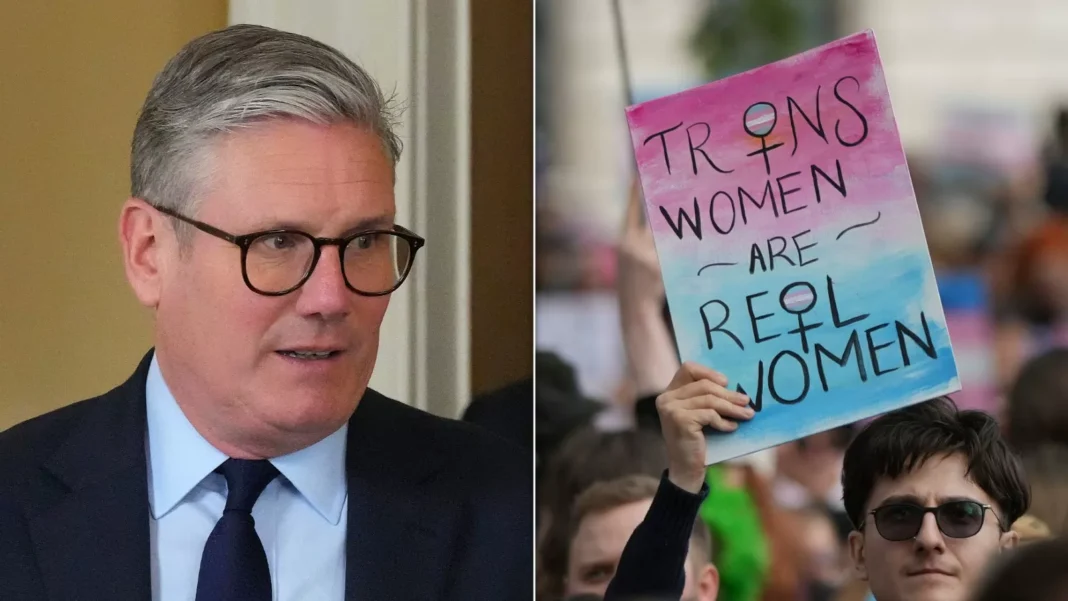Keir Starmer, the current leader of the Labour Party, has been at the center of controversy recently due to his shifting stance on trans rights. In a recent incident, Starmer was confronted by a trans rights protester in London, highlighting the ongoing struggle for equality for the trans community.
The protest came in the wake of a landmark ruling by the Supreme Court, which stated that a person’s gender is determined by their biological sex. This ruling has caused widespread confusion and fear among the trans community, who have been fighting for their rights for years.
Starmer’s spokesperson stated on Tuesday that the Labour leader no longer believes that a trans woman is a woman, a stark contrast to his previous stance in 2022. This sudden shift has caused concern and disappointment among the trans community and their allies.
In response to the ruling, the advocacy group TransActual has written a letter to the Prime Minister, challenging the government’s claim that the ruling has brought “clarity” to the issue of trans rights. The letter raises 14 critical questions that the ruling has failed to address, causing further confusion and uncertainty for the trans community.
One of the main concerns raised by TransActual is how the term “biological sex” will be defined, as it is currently not clearly defined in the Equality Act. This raises questions about how outliers in terms of hormones, genitalia, and chromosomes will be treated, and what mechanisms will be in place to correct any administrative mistakes, such as incorrect gender markers on birth certificates.
The group also highlighted the impact of the ruling on women who are not trans, particularly those with gender non-conforming appearances or attributes. The fear is that this ruling will erode the rights of all women, including those who do not conform to traditional gender norms.
Another crucial issue raised in the letter is around single-sex spaces, such as public toilets and changing rooms. The government’s response to the ruling has been to suggest that individuals should use these facilities according to their biological sex, rather than their gender identity. This raises questions about how access to these spaces will be policed and enforced, and how this will impact the safety and dignity of trans individuals.
The letter also highlights the concerns around policing, specifically the policy of the British Transport Police (BTP) to allow male officers to conduct strip-searches on trans women. This raises questions about how the BTP will determine who is trans and who is not, and what the remedy will be for women who are not trans and end up being strip-searched by male officers.
During a radio interview, the Minister for Policing, Diana Johnson, appeared to support the BTP’s policy, stating that strip-searches would be conducted based on biological sex. However, this response has been met with criticism from the Green Party co-leader, Carla Denyer, who believes that the government is giving ground to those who seek to marginalize and discriminate against trans people.
Denyer argues that this ruling and the government’s response will only make it harder for trans people to exist in public spaces, access support and healthcare, and live without fear of abuse and harassment. She believes that the government has a duty to ensure the rights and dignity of all individuals, regardless of their gender identity.
In conclusion, the trans community and their allies are demanding answers from the government about how they will ensure the rights and safety of trans individuals in light of this ruling. It is essential for the government to listen to these concerns and take action to protect the rights of all individuals, regardless of their gender identity. We must all strive to create a society where everyone can live without fear and discrimination, and where everyone’s rights and dignity are respected and protected.



